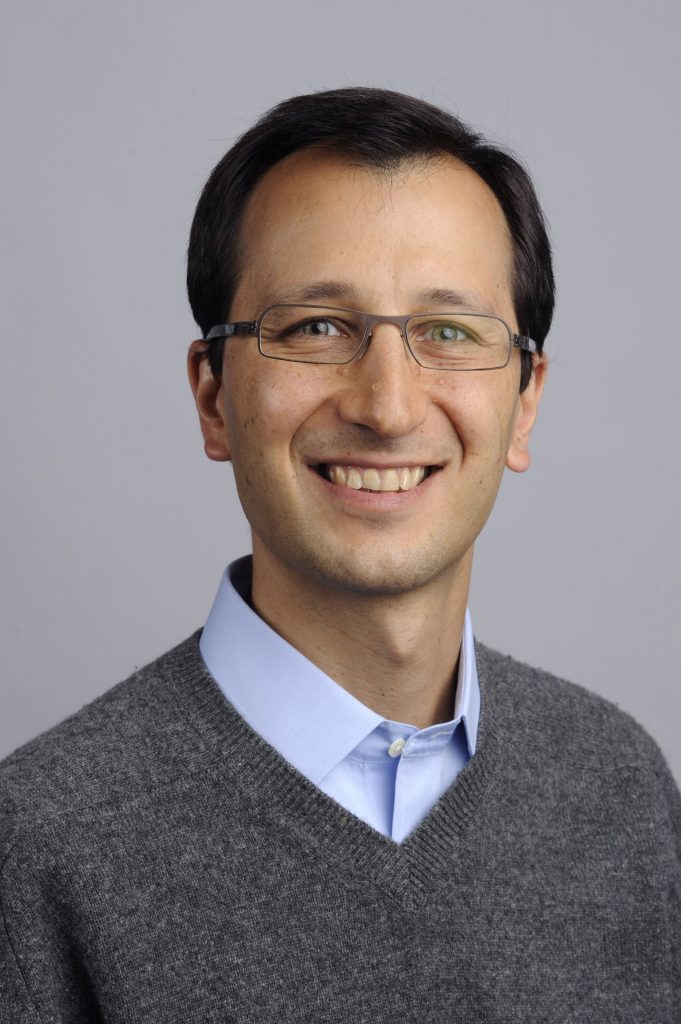New Faculty Profiles showcase GSA members who are establishing their first independent labs. If you’d like to be considered for a profile, please complete this form on the GSA website.
Javier Apfeld
Assistant Professor (since 2015)
Biology Department
Northeastern University
Lab website
Research program:
My lab seeks to dissect the interplay between redox processes and age-dependent changes in tissue function in the nematode C. elegans, in order to shed light on the association between the disregulation of the cellular redox environment and many human diseases of aging.
Our research focuses on redox processes that span increasing levels of organismic structure—from the molecular to the cellular and organismic levels. We study how oxidation affects the function of proteins and signaling pathways at the molecular level, using molecular biology and CRISPR-Cas9 genome editing. We probe how protein oxidation is regulated at the cellular and tissue levels, using genetically-encoded protein oxidation sensors that we monitor via ratiometric fluorescence microscopy in live animals. We use system-biological tools to integrate how redox control affects organismic traits, including lifespan.
“Mentoring is perhaps the aspect of science that I cherish the most: from instilling in students the basics of C. elegans culture on the first day in the lab; to conveying to them how to judiciously evaluate the works of others in journal clubs and how to present their own work at meetings; to helping them to refine their action as mature investigators, teaching them to plan strategically and guiding them to develop what before was but the seed of a scientific program.” -Javier Apfeld on his favorite part about his work
How has being a member of GSA helped you advance in your career? Why do you think societies like GSA are important?
The GSA has been there for me, although most of the time I was unaware of it. It is a tremendous privilege to be able to devote one’s life to study fundamental questions in biology. Model organisms play an essential role in how we acquire knowledge to satisfy our own curiosity and to the benefit of society. The GSA plays a fundamental role in helping to organize the community of scientists performing this basic research by sponsoring scientific meetings and publishing our research. The GSA is also our representative to the larger institutional ecosystem where it plays an essential role educating the public and key decision-makers on the role of basic research and the need to fund it.
If your position involves teaching, which subjects or courses are you expecting to teach?
I teach an upper-level undergraduate course on the cell and molecular biology of aging. My class covers the recent scientific discoveries that have transformed our understanding of the process of aging, as well as potential applications of this new science. We read, discuss, present and report on primary research papers from the literature.
Previous training experiences:
• Undergraduate at MIT with a BS in Biology, research with Ruth Lehmann on the evolutionary conservation of a Drosophila embryonic pattern determinant.
• Graduate study at the University of California San Francisco with a PhD in Biochemistry and Biophysics with Cynthia Kenyon studying the genetics of C. elegans aging.
• Research Scientist at Exelixis and Elixir Pharmaceuticals studying Alzheimer’s disease and aging molecular genetics using various model organisms, including C. elegans and Drosophila.
• Postdoctoral fellow and Instructor in the Department of Systems Biology at Harvard Medical School with Walter Fontana developing new experimental and theoretical approaches to study C. elegans redox processes and aging.
What do you like to do when you’re not at work?
I love spending time with my family.













